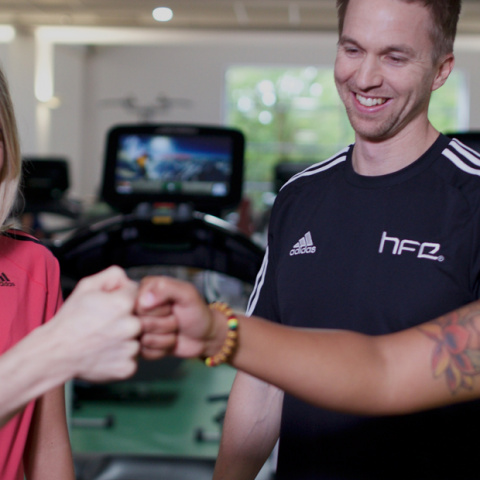Back in the 70s and 80s, the term “fitness freak” was commonly used to describe somebody who participated in so-called “keep fit” activities like jogging, aerobics or weight training.
It was not uncommon for friends or co-workers of the exercise enthusiast, who didn’t really understand the concept or benefits associated with regular exercise, and/or who were jealous of their friend’s great physique, to label them literally as a freak! The notion that somebody would exercise for pleasure was almost unthinkable! “What…you like to run for fun? You enjoy it?”
In recent years, the world over has seen a significant change in attitude towards those who participate in exercise and fitness training activities. In the late 90s, ‘going to the gym’ and getting fit really started to take off. The International Health, Racquet & Sports Club Association (IHRSA) state that “the membership of private British gyms, and their revenues, more than doubled between 1996 and 2001, paving the way for a new dawn of fitness enthusiasts”. Firms such as David Lloyd, Fitness First and LA Fitness joined the marketplace during this period, and experienced significant growth.
The UK fitness industry is as strong as it has ever been and the European Health & Fitness Association showed that as of March 2013, the industry was worth a whopping £3.92 billion. They also published a year-on-year rise in members of around 4.5%, with the January to mid February period contributing around 1.8% of this figure. Exercise is very much a staple of everyday life for many!
Going to the gym has become a sort of religion for many people today, especially among those that seek to redeem themselves from a weekend of overindulgence and gluttony. Recently released TGI data reveals that there are almost 4.5 million UK adults who are over the age of fifteen who have a gym membership; this is an increase of almost a million since 2000. (Source: http://www.marketresearchworld.net/).
Today’s budding exercise enthusiasts are not the first people to place so much time, energy and effort in to getting in shape. ‘Gymnasium’ is a play on the word ‘gumnos’ , which is a word used by the Greeks to describe someone that was naked. From Greek wrestlers to Roman Gladiators, the ritual of exercise and fitness training has been around for millennia.
Evidently the fitness boom of the last 20 or so years has been accelerated by fat. As technology advances and the availability of energy rich foods increases, human beings are without doubt becoming fatter beings. Concomitantly, never before in the history of our species has there been so much peer pressure to look good, and this pressure now affects both men and women. One person’s motives for exercise will always to some extent be different from the next person’s, but it is possible to identify a number of key influences. While it is beyond the scope of this post to explore these influences, fat fighting and body image pressures are likely to have a significant effect.
Historically, if you wore a heart monitor, owned 2 pairs of running shoes or went for a run on your lunch break, you were literally a freak. Today however, these are pretty standard practices for many people – the fitness freak is no more! In the coming years, and as attitudes and opinions continue to change, it will be interesting to see whether this shift will come full circle to the extent that the ‘freak’ suffix will be used to describe those who are inactive!


